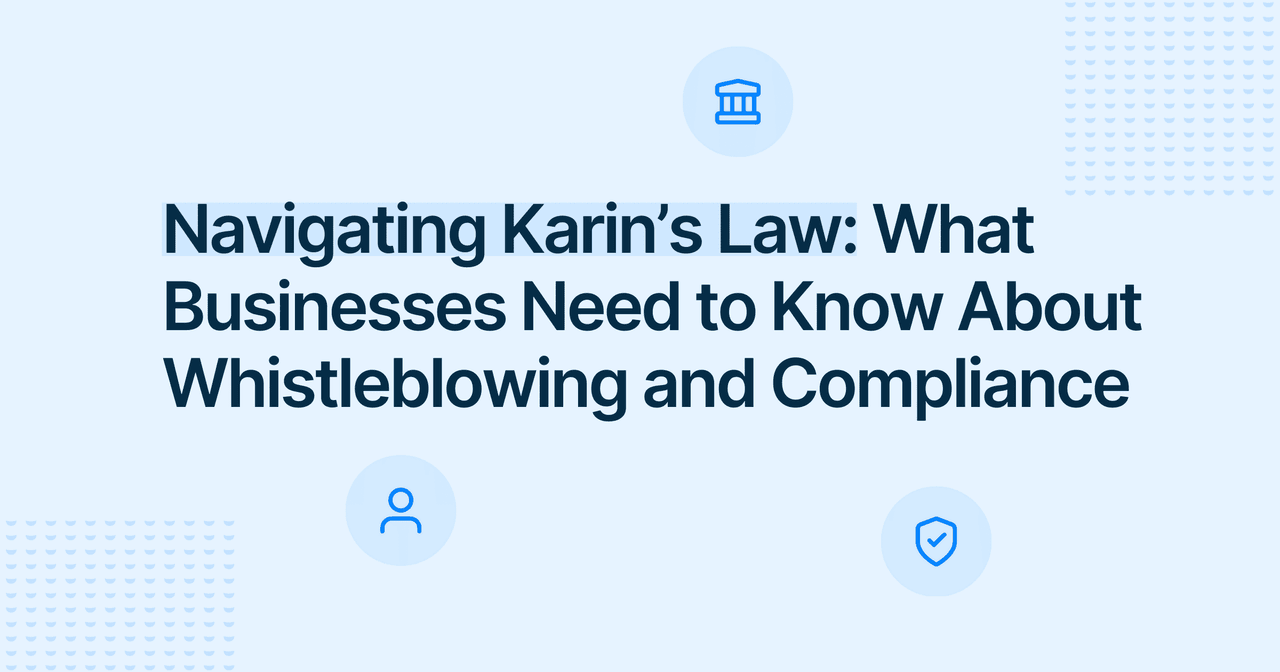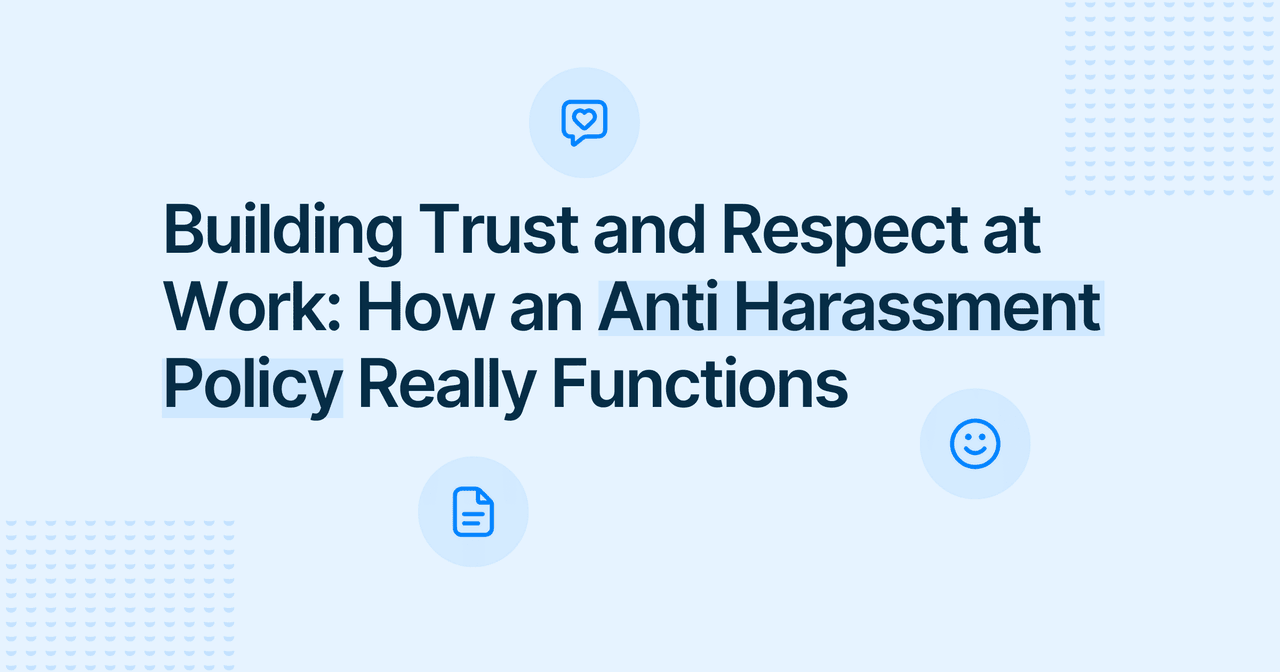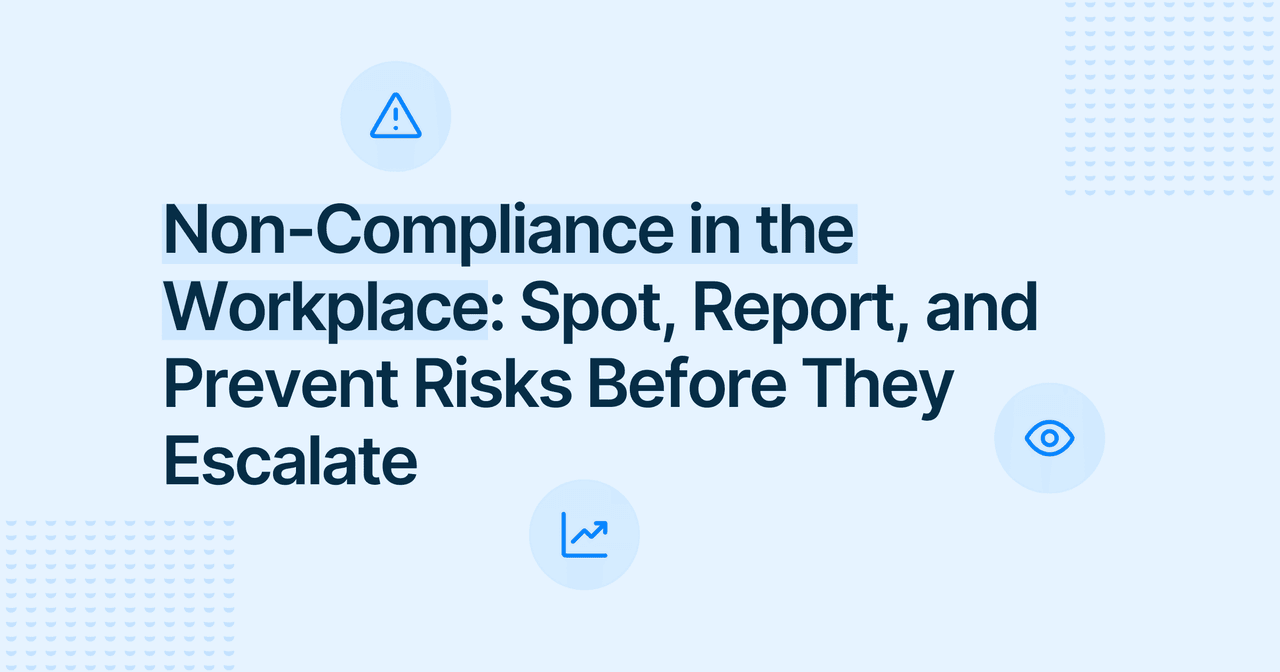Whistleblowing Uncovers Serious Fraud: Insights from Rohia Hakim, CTP Invest
Customer Stories

Helena Jezkova
Marketing Manager
Published
2023-07-26
Reading time
3 min


Table of contents
Subscribe to our newsletter
How does corporate culture influence the success of companies? What does compliance entail, and what role does whistleblowing play in it? These questions were answered by Rohia Hakim, who worked as a Compliance Specialist for Ernst & Young (EY) for almost 10 years and now serves as a Compliance Officer for CTP Invest.
Your experience in compliance is extensive, for nearly 10 years you worked as a Compliance Specialist for Ernst & Young (EY), and now you work as a Compliance Officer for CTP Invest. What drew towards this kind of work?
Compliance probably found me, rather than the other way around. At the time I was working for a multinational company. After several acquisitions and mergers, it became necessary to improve the company culture. So a huge HR program was implemented to change the company culture, for which I was the main face. Thanks to its successful implementation, I was ‘discovered’ by Ernst & Young and in 2011 accepted a job offer with them. That’s how I gained experience in compliance across various sectors and organizations, both in the private and public sphere. Compliance is definitely a fulfilling job and, in some ways, a calling.
Many people still don’t exactly know what ‘compliance’ means. How would you briefly describe ‘compliance’?
In my view, compliance is a lot more than simply adhering to laws and rules. Compliance is about obeying legal requirements, regulatory requirements, internal regulations, ethical standards, and ‘going the extra mile’. Especially from an ethics point of view, co-existing with the company’s surroundings and the like. I’m of the view that the law cannot cover all of life’s situations. Ethics improves an organization’s performance, reduces transaction costs, and strengthens employee loyalty. I believe that everyone would like to work in an ethical organization. In addition, it is clear that public pressure is increasing for corporate social responsibility.
How does compliance help managers and companies? Does a company’s culture and ethics impact its success?
Today it is absolutely clear that conducting their business ethically is critical for companies. Perhaps not globally, but definitely in developed countries. For example, I definitely see this sensibility among the younger generation, who prefer companies with higher ethical standards – whether they are a customer or potential employees, they are not willing to compromise or make concessions.
What is the role of whistleblowing in compliance?
Various analyses have long shown that whistleblowing is clearly the most common way companies uncover fraud. And it makes sense. Typically, it is employees that uncover fraud, since employees can catch or witness unusual behavior.
What is your experience with whistleblowing? Do you have any examples?
I have many years of experience with whistleblowing. I have seen how companies can uncover instances of serious fraud through whistleblowing. It often reveals the possible manipulation of public contracts or details of corruption. Specifically, we could look at the case of whistleblowing in the tobacco industry, which was beneficial for the public at large. In that case, an internal whistleblower revealed that cigarettes (which, up until that point, were hugely promoted and consumed en masse) were harmful to our health and highly addictive. Something which cigarette producers until then vehemently denied.
What are the biggest challenges in your job?
The challenge is definitely that you have to constantly make yourself known to colleagues. So that compliance becomes an integral part of their daily lives. A positive part. I want to be a partner, not a threat or punitive agent. To be supportive rather than an obstacle to business. And also the fact that compliance is constantly changing. I don’t just mean legislation and requirements, but also the overlap of the two. A modern compliance officer also needs to know their way around data protection, ESG, and cyber security (IT). These are complex areas and require further professional development. And lastly communication. Communication is key, as with everything.

Keep Reading

Alaa El-Shaarawi2025-12-197 min
Company Ethics Policy: How to Set Standards That Guide Every Decision
Workplace Environment

Marie Roland2025-12-165 min
Navigating Karin’s Law: What Businesses Need to Know About Whistleblowing and Compliance
Whistleblowing

Alaa El-Shaarawi2025-12-087 min
What Is an Ethical Code of Conduct? The System Behind Ethical Behavior in Business & Healthcare
Workplace Environment


